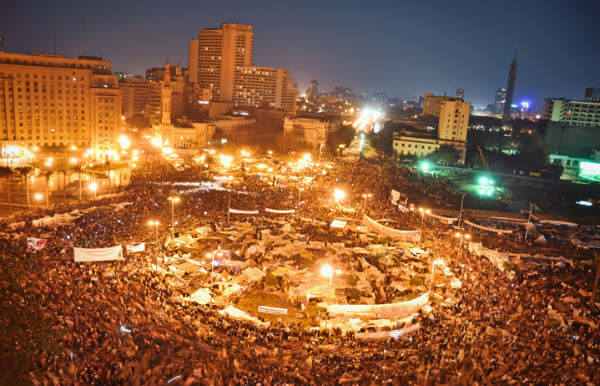Peter Harling and Alex Simon write: To outsiders, the Middle East usually is an intellectual object — a place on a map onto which they project their fears, fantasies and interests. But to many it is a home to live and despair in, to flee and to cling to, to loath and to love. When writing for the truly concerned, commentary has become futile: what is there to say that they do not already know? The ideals and hopes we could once believe in have disintegrated as a bewildering array of players wrought destruction, seemingly teaming up in the region’s devastation rather than fighting each other as they claim—let alone seeking solutions.
With suffering and complexity relentlessly on the uptick, even well-intentioned observers are tempted to simplify what we cannot fully understand, focusing excessively on the distraction of daily news and drifting toward some convenient intellectual extreme. It is a constant struggle to rebalance one’s positions, resume analysis of meaningful, underlying trends, and attempt to contribute responsibly. At the heart of this ambition is a need for honesty and humility rather than partisan hackery and hubris — acknowledging our failures and our limitations and our inability to fully comprehend, let alone effectively correct, the course of events in the Middle East. From there we may step back and appraise how best to play a positive rather than destructive role in shaping the region’s trajectory.
The dominant trend, however, has been in the opposite direction. Most conversations are self-centered and reductive. This reality is starkest in the debate about the Islamic State (hereafter “Daesh”) and the Iran nuclear deal, but the tendency is pervasive: the Russian intervention in Syria, a mushrooming refugee crisis, pulverizing wars in Libya and Yemen, only enter the discussion inasmuch as they disturb our “national interests” as we narrowly and shortsightedly define them. In Washington, the brutal execution of one American journalist has approximately the same galvanizing potential as the large-scale persecution and enslavement of Iraq’s Yazidi minority. Both are more compelling than the arrival of several hundred thousand refugees on the shores of Europe, who are in turn of far greater concern than the millions more stranded in their own countries and those throughout the region who are routinely bombed into nothingness.
More than well-defined interests, the Western response to a given Middle Eastern tragedy is often dictated by knee-jerk, emotional factors — cultural affinities (or lack thereof) with the victims, an enduring obsession with “terrorism”, and sheer visual potency (whether Daesh’s horror-movie barbarism or the occasional heart-wrenching image of a drowned child) are but a few. While understandable, these are not a basis for strategy.
The United States, of course, is not the lone culprit. Key players across the board are acting less on the basis of interest than obsession, pursuing ad hoc and reactive means in support of amorphous and ill-defined ends. While Washington proposes to destroy the mind-bogglingly complex socio-economic-political-military entity that is Daesh through airstrikes (and a dash of social media evangelism and tepid support to whomever appears willing to pitch in), Moscow seeks to restore its prestige and cut Obama down to size by pummeling what remains of Syria’s non-jihadist opposition; Tehran works its way to regional leadership by pumping more weapons, money and hubris into whichever proxy is most expedient at a given moment in a given country; Riyadh clambers to head off presumed Persian scheming by whatever means necessary, while Cairo does the same toward the Muslim Brotherhood bogeyman. And so on and so forth.
Behind of all this posturing are incoherent binaries of good versus evil—typically euphemized in the language of “stability versus terrorism” — whereby states attempt to reduce the pandemonium to one or two irreconcilable enemies, one or two overarching goals and however many direct or proxy wars appear necessary to suppress the former and achieve the latter. In other words, keep it simple: pick your mania, ignore all else, and it will finally make sense. [Continue reading…]

